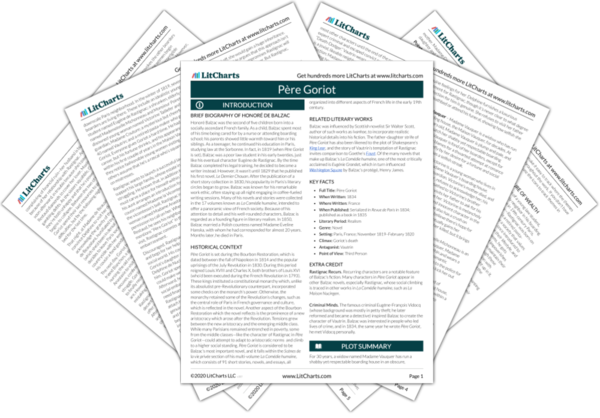Madame de Nucingen is using Rastignac just as she uses her father: to get her out of a difficult financial situation. If anything, though, her use of Rastignac is even more degrading—he doesn’t even have anything to offer her himself, he’s simply a convenient person to send into the gaming salon on her behalf. At the same time, Madame’s situation—utterly dependent on the favors of father, husband, and lover—shows how financially trapped a woman could become. The way society is set up, in other words, incentivizes manipulative relationships just like this one.
